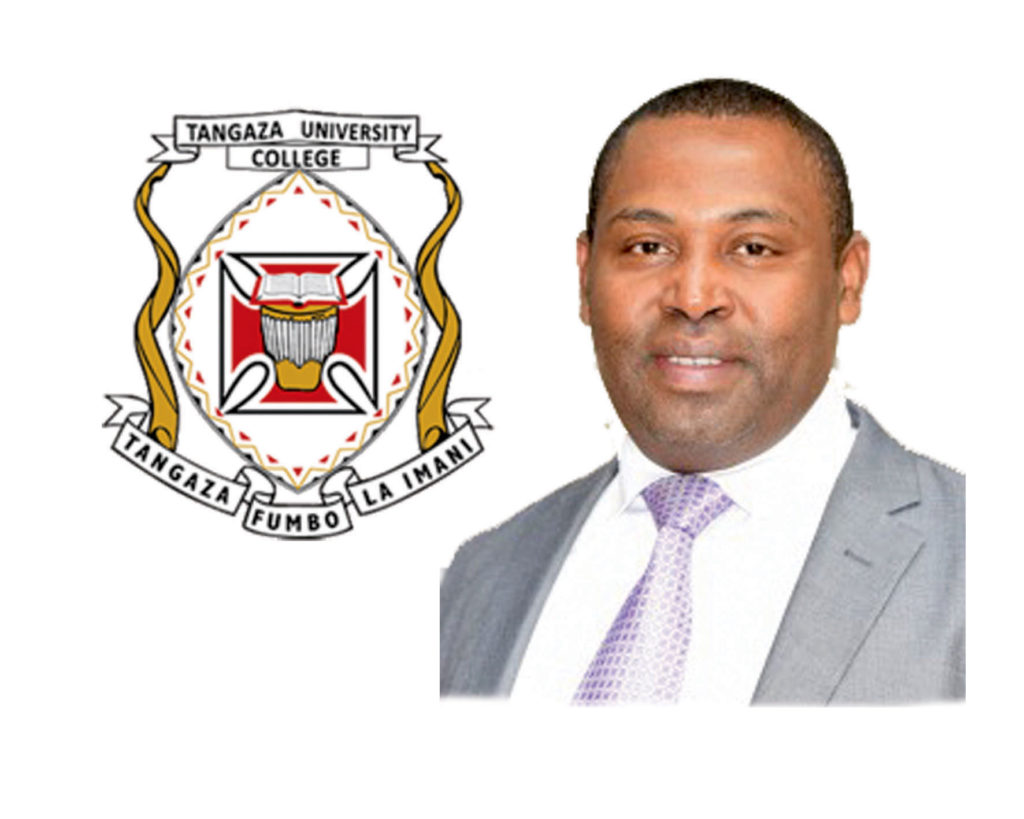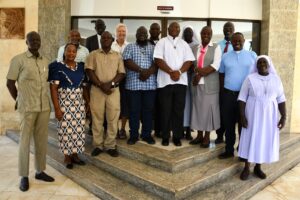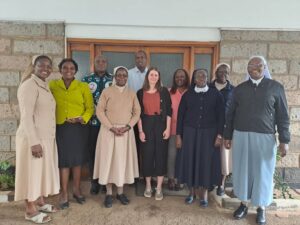KENYA: Catholic Institution of Higher Learning Ready to Resume Classes in a Month’s Time

Sr. Jecinter Antoinette Okoth, FSSA
Tangaza University College (TUC), a Kenya-based constituent of the Catholic University of Eastern Africa (CUEA), is set to commence the 2020-2021 academic year in August after the government’s closure of all learning institutions in mid-March to help curb the spread of Coronavirus in the country.
In a letter addressed to Tangaza family, the Vice-Chancellor (VC) Designate Prof. David Wang’ombe noted that TUC is “determined to ensure continuity of teaching and learning” hence the announcement of opening the University next month.
“TUC would like to strengthen educational continuity for all students. Therefore, the new academic year will start as planned on August 21st, 2020,” reads in part the VC’s letter dated Monday, July 20.
According to the Ministry of Education, Universities in Kenya should start phased reopening in September, which the Education Cabinet Secretary said will be on a case-by-case basis based on compliance with Ministry of Health (MoH) COVID-19 protocols.
For the opening of TUC Prof. Wango’mbe noted there are two possibilities. “If the authorities confirm that Tangaza has complied with the standards set by the Ministry, then the opening of the academic year will be as usual with a Mass imploring the Grace of the Holy Spirit. The classes will then continue face-to-face from Monday 24 August 2020 ensuring strict compliance with the health rules defined by the Ministries of Education and Health.”
The other possibility is that if the authorities judge that the conditions for resuming face-to-face courses are not yet met, the new academic year will begin with remote teaching.
“The respective Institutes will advise on the platforms to use but remote online classes will run from Monday 24 August 2020. We shall continue to engage government agencies to ensure we meet the conditions for reopening,” Prof. Wango’mbe added.
Responding to the reason why TUC has opted to resume classes in August and not in September as proposed by the government, Prof. Wang’ombe who began his leadership as the VC designate of TUC in January 2020 said in an interview with AMECEA online, “August is the beginning of the new academic year and so the resumption is in reference to that. If the University does not begin where it was planned, it becomes a challenge for the whole academic year.”
He added, “depending on whatever will be possible whether face-to-face or remote learning, the semester will begin as scheduled.”
Since TUC has been having online classes for the May-July trimester and have “acquired an online examination platform that ensures integrity,” the University has assurance that even if the school does not open for face to face interaction, classes shall continue remotely.
In terms of preparedness to comply with COVID-19 regulations towards opening of the University, Prof. Wango’mbe who is the first lay person at the helm of TUC, disclosed, “We have set up a COVID- response committee which is checking all the things that we need to have ready.”
“As at now, we are looking at the protocols provided by the World Health Organizations (WHO) and the ministry of education,” he highlighted and continued, “For social distancing we have marked 1.5M distance in all our classes, we have put sanitizers across all places, we are putting water points for washing, we want to make sure we come up with masks even though people will be allowed to have their own but we will have supplementary just in case and we already have isolation centers.”
The VC admits that even though they are getting prepared to resume classes next month, nothing is always perfect without flaws.
“Actually, we are aware that whichever option we take, there are still challenges. There are students who cannot afford online learning, but the University has coordinated with Kenya Education Network (KENET), an association owned by universities and helping with advance technology in higher education, who have gone a number of steps ahead to negotiate arrangements of how teaching can be done online.”
“Besides, service providers including Safaricom and Telkom will provide bundles to students at a discounted price to help them access academic materials, and students who will also not manage to do exams online they will have special exams after COVID-19 has gone down and the situation normalizes,” Prof. Wango’mbe narrated during the interview.
He concluded wishing students well especially those going on with online exams and welcomes them back for the new Academic Year.


